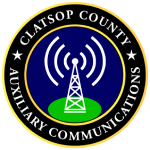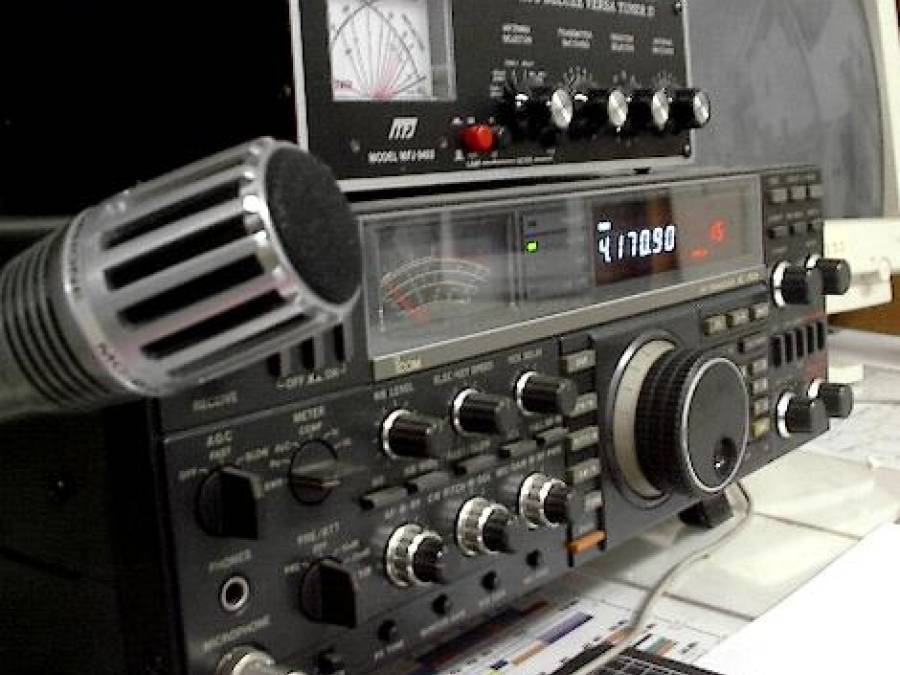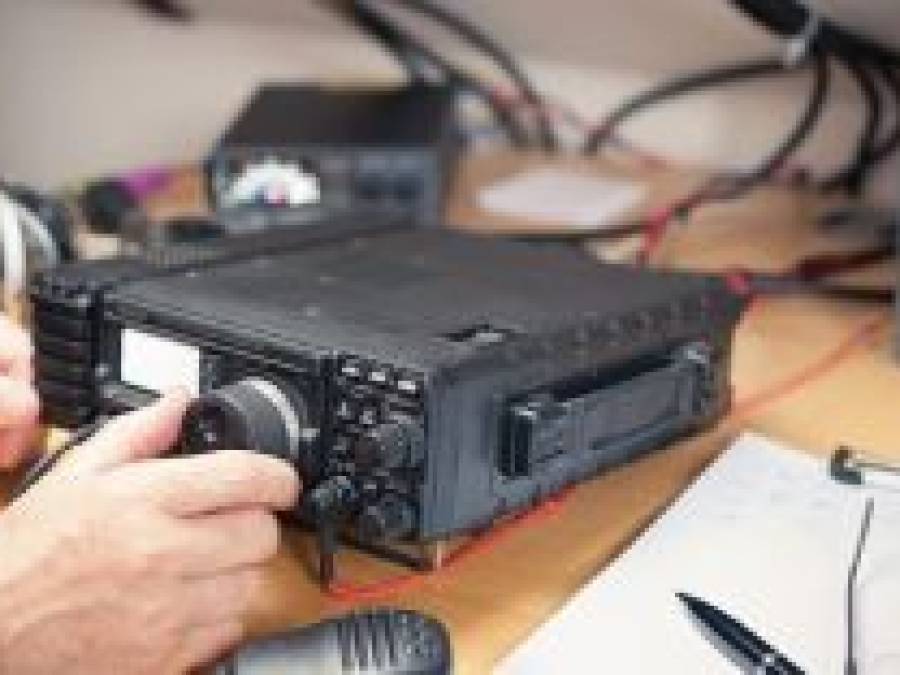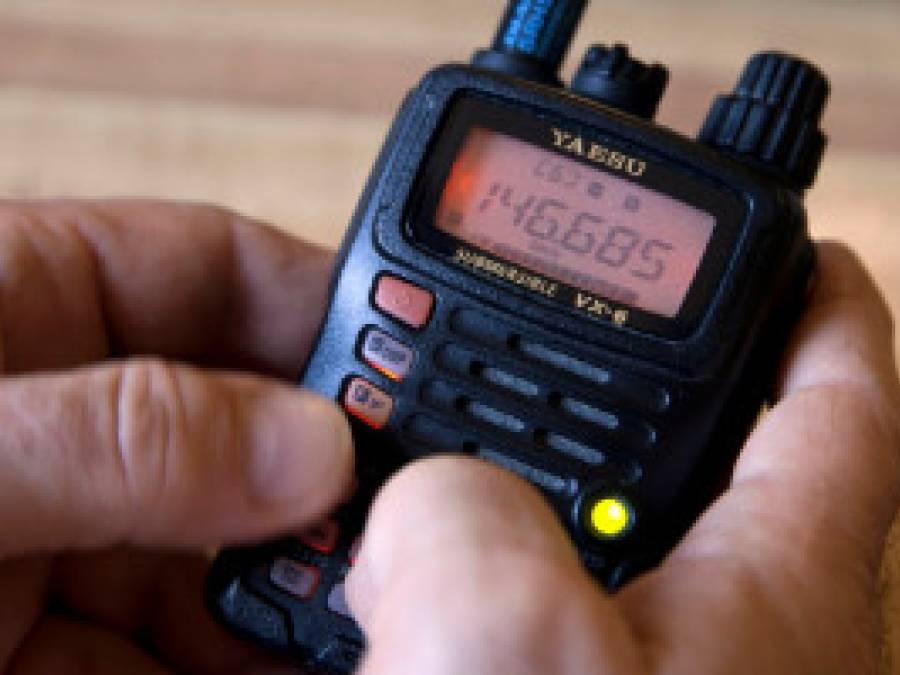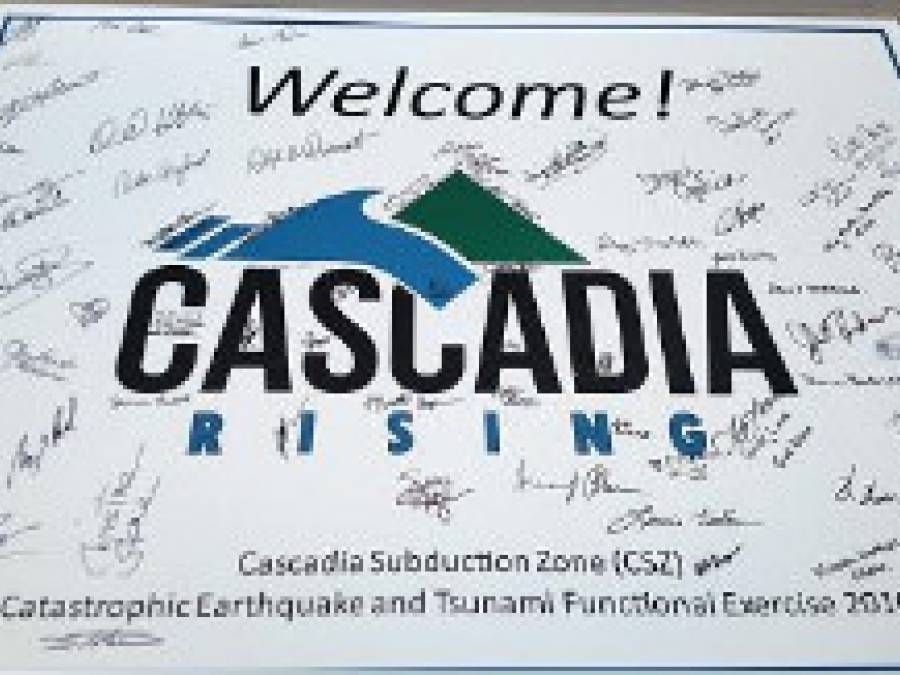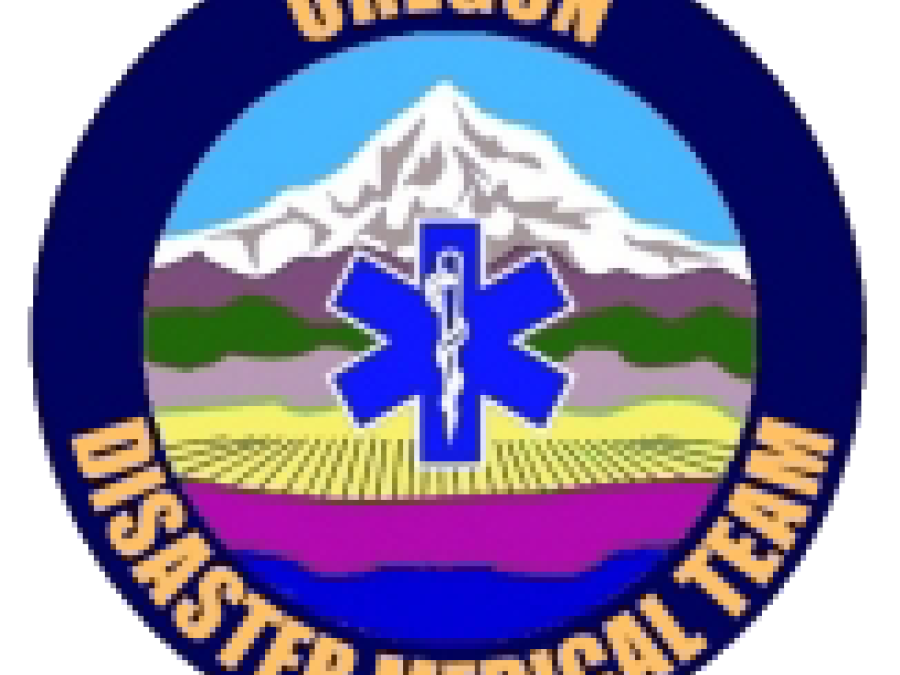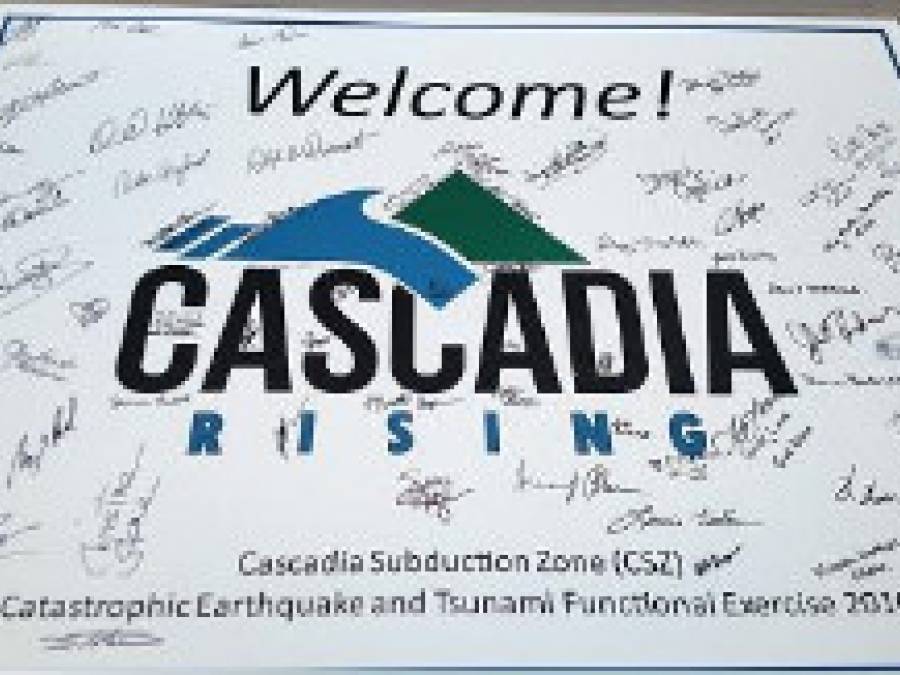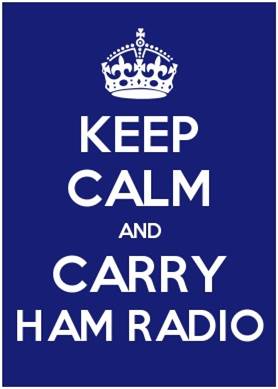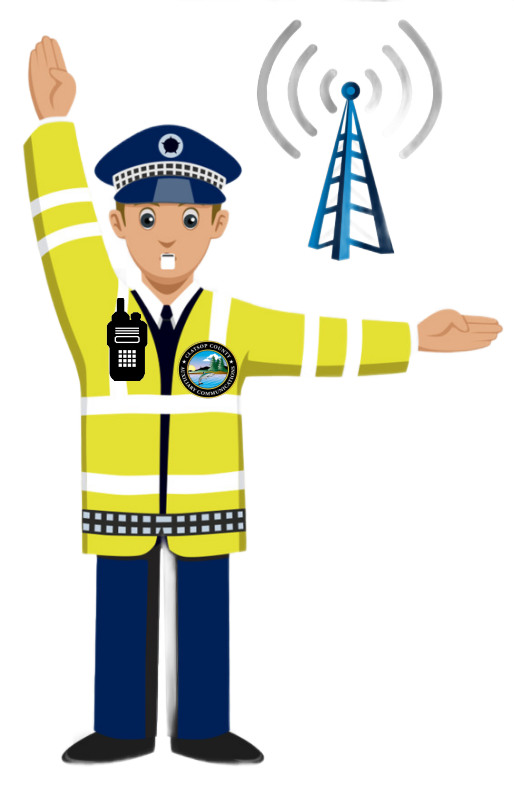 There are three types of nets that you may be asked to run. First is the regular weekly net held by ARES®/RACES. This is the easiest one for you to learn to be NCS at because you have a script to follow. On that subject, remember, the script is a guideline of the material to be covered in the weekly net and may be altered for any good reason. The purpose of the script is to make it easier to keep track of where you are in the net and help you not forget any of the regular items covered in those weekly nets. SUGGESTION: Have more than one copy of the script so you can mark it up as you go. That simplifies keeping track of where you are in the net. It also makes it easier to maintain the essential – LOG – of who checked in and who had business.
There are three types of nets that you may be asked to run. First is the regular weekly net held by ARES®/RACES. This is the easiest one for you to learn to be NCS at because you have a script to follow. On that subject, remember, the script is a guideline of the material to be covered in the weekly net and may be altered for any good reason. The purpose of the script is to make it easier to keep track of where you are in the net and help you not forget any of the regular items covered in those weekly nets. SUGGESTION: Have more than one copy of the script so you can mark it up as you go. That simplifies keeping track of where you are in the net. It also makes it easier to maintain the essential – LOG – of who checked in and who had business.
The second type of net is the Public Service event net. These are seldom, if ever, scripted and as such it is far better for you to have run some weekly nets before attempting one of these. They range from very simple with a length of one or two hours, to extremely complex, running several hours to multiple days. Logs of the net activity are very important to smooth operation of this type of net.
The third type of net is the incident or emergency net. These range from complex to very complex and tend to be much more fast paced than they should be (SLOW DOWN – you pass more information faster that way). It is recommended that you have run many event nets, if at all possible, before attempting an incident net. Maintaining accurate logs for these nets is critical to effective net operation.
The weekly net or very simple events net are the only nets that can be run effectively by one person. All others require at least two people at NCS to run efficiently – one person to talk and one to log. In long term or very complex nets, a third operator is strongly recommended. This third person can handle messages, runner tasks, and relieve the other two operators at regular intervals so all can operate at higher efficiency.
- To begin a scheduled weekly net you will:
- Get the latest copy of the Net Script.
- READ it before you start.
- Start the net on time. Remember, there will likely be people waiting for the net. Don’t waste their time by being late.
- Be as concise as possible as you conduct the net.
- If you tumble or mumble, unkey, take a deep breath and go at it again. The extra few seconds will do wonders for your composure
- SMILE your ability to be friendly helps these nets run more smoothly.
- To begin a scheduled event net you will need:
- A list of the participants
- The time and frequency you will start operating on.
- A description of what we are to accomplish.
- You will then:
- Open the net with a description of the event and how long it is anticipated to run.
- Be as concise as possible as you conduct the net.
- Keep good logs!
- Handle traffic.
- To begin an incident net you will:
- Get a description of the incident and what support is needed.
- Find out from your DEC, EC or AEC where and when the net is to be run.
- Find out what resources are needed to support the incident. Remember, you will probably be the staffing net for the first period of time for this incident.
- Open the net with a description of the incident and a statement of what help is needed.
- Be as concise as possible as you conduct the net.
- Keep detailed logs!
- Follow your DEC, EC’s instructions.
- Handle traffic.
- Two important items:
- If NCS cannot be heard by all stations on a given repeater system and there are qualified NCS operators who can be heard by all — NCS duty should immediately be turned over to the station that can be heard.
- For all nets – Do your best to remain as calm and relaxed as possible, give it an honest try and ask for help if you need it. Nothing more will ever be asked of you. One last hint – ask for a mentor for your first few nets of each type. This helps you learn faster and assures someone can help you pick things up, should you fumble anything significant.
- The following are suggestions for forms that may be of use to you:
- Mobilization/Demobilization
- Communications Log
These forms are available on the K7YCA website.
NCS QUESTIONS
The following is a list of questions an NCS operator needs to ask of themselves BEFORE starting a net. If you cannot answer at least two thirds of the questions in the affirmative, you should seriously consider having some one else run the net. Exceptions to these are daily to weekly scheduled nets and those should still consider many of the items.
1. Is the NCS location away from the Command Post (CP) or EOC?
If not, it should be. The noise and commotion at CP/EOC degrades your ability to run a good net and the noise you generate only adds to the confusion there.
2. Are you using a headset with noise canceling microphone?
You really should. Even from home the background noise will affect h well you can hear and be heard.
3. Do you have the best performing antenna for the conditions?
A “rubber duck is not adequate unless you can see the repeater antenna. That does not mean see the mountain the repeater is on, it means see the antenna.
4. If you are running from battery: Do you have at least enough charge on the battery to run more than one hour? You should have a battery with 90+% charge but if you are the only choice for NCS then make sure you can run the net long enough to have someone else get ready.
5. Do you have pencil/pen and paper sufficient to run the net for a full shift?
You will NOT be able to remember enough of the information to be effective unless you
write it down. It is up to you to maintain the log for the event/incident unless you have an assistant to handle that assignment.
6. For VHF/UHF: Do you know the characteristics of the repeater system you are on?
Your effectiveness as NCS will be adversely affected if you do not.
7. Do you have a runner- liaison or logging person to support you?
For large scale events three people are needed. You cannot handle the net, log and run messages. These positions may be rotated to eliminate fatigue.
8. Do you have a designated relief operator?
Everyone gets tired and the NCS must be the most alert operator on the net.
ATTRIBUTES OF A GOOD NCS OPERATOR
- Good communications skills and fluent command of our language
- Good voice quality
- Good hearing capabilities
- Good listening capabilities
- Good ear-to-hand copying skills
- Understands what SERVICE means
- Has good knowledge of the Incident Command System
- Willing to take and carry out direct orders
- Is a strong team player
- Is Self-assured but not overbearing
- Decisive, with the maturity to make good judgment calls
- Physically able to tolerate high stress for extended periods
- Constant concern for the safety of participants
- Organizer
- Sense of humor
- Ability to absorb new terminologies quickly
- Decent (readable) penmanship
- Generally neat of appearance
- Consistently demonstrates above average operating techniques.
LEARNING TO BE A NET CONTROL STATION (NCS)
Many of the skills used in contesting are applicable to NCS. Both activities involve coordinating several stations on the same frequency at the same time. The similarity ends there. Where the contester is in a hurry, NCS is calm and almost seems to be going very slowly. The extra time NCS uses actually speeds information flow by minimizing repeats and ensuring that priority information has access to the net without needing the largest signal on the net.
NCS techniques include:
Have the best performing antenna for conditions. A ‘rubber duck is not adequate unless you can see the repeater antenna. That does not mean see the mountain the repeater is on, it means see the antenna.
A good log is critical to an efficient operation. Create and use a good log. A few calls scribbled on a sheet of paper, in no real order, becomes useless in a few seconds. Make sure your log includes: 1) Time of the entry 2) Call / Tactical call 3) Summary of what was said or requested. Be sure not to kill yourself with excessive details. The log is an overview of who did what, where and when.
Plan what you are about to say as if you will be quoted.- PTT does not mean Push Then Think.
DO NOT make editorial comments about the business or information being passed unless it will speed or enhance the information flow! Chattiness, especially early in the net, degrades the effectiveness of the net.
Be as concise as possible. Use the fewest words that will completely say what you mean. This will minimize the need for the repeating of instructions.
Slow Down! Wait three or four seconds before you answer any call. This assures any emergency or priority traffic has access to the net without requiring the largest signal.
When asking for reports or soliciting traffic, listen! Take down as many calls as you can identify before you acknowledge anyone!
When there is a double, try to get something unique from one or more of the stations. Then call for clarification from those stations ONLY. The alternative approach is to acknowledge the check-ins you could understand and then call for checkins that tried in the last round but were not acknowledged. The very worst thing you can do is to say “The station that doubled with ..?? How are they to know who they doubled with?!
When acknowledging checkins, list the call signs as letters (not phonetically). The purpose of this acknowledgment is to confirm to each check in that his/her call was heard. Phonetics used on all acknowledgments simply slows the net. NOTE: Phonetics are an excellent way to clarify questions about the call received (was that a B or a D, etc.). Reciting all of the check in information beyond the call simply wastes time.
Acknowledge all stations that you heard, then yield the frequency to a single station. When that station is finished, hand the frequency to the next station on the priority list, without soliciting more traffic. Follow this pattern until you’ve completed your list, then repeat. The exception to this is when handling routine traffic during an emergency. With routine traffic during an incident net, break between messages to solicit any emergency/priority traffic and handle that first.
The NCS callsign, should be announced several times at the beginning of the net and every eight to ten minutes during an exchange. Many NCS’s use the repeater ID’er to track the time to identity.
For scheduled nets, NCS’s goal should be to run the script top to bottom and handle all of the listed business, announcements and traffic as quickly as possible, without rushing.
Most participants will catch on quickly to the pattern. If they do not, take the time to explain. Things get done much faster if everyone uses the same techniques.
Take frequent breaks. While you may not recognize the stress that being an NCS produces, it will become evident in your voice. If you are asking yourself when your last break was, you know it is time for one. Turn over the net to your backup at least every two hours and REST. Do not listen to the net. Rest. Then, when rested, listen to the net for a few minutes before resuming your station.
Control the tone of your voice. Be as calm as possible. Tension tends to make our voices raise in pitch and this change will be picked up by the net. Use a calm tone and members of the net will tend to remain calm.
Last and FAR from least …
The ability to remain cool, calm and collected will buy you more than anything else. There is no doubt that being an NCS is a high pressure assignment and it is easy to become frustrated or angry. If you have a frustrating problem, ask for help from other members of the net.
Credit Reference: K7YCA Original article
